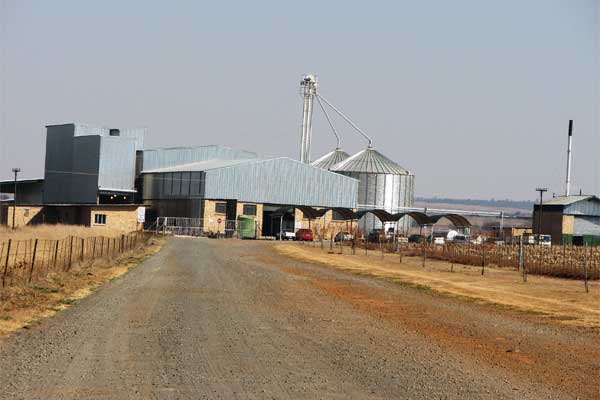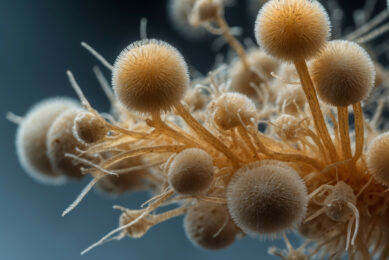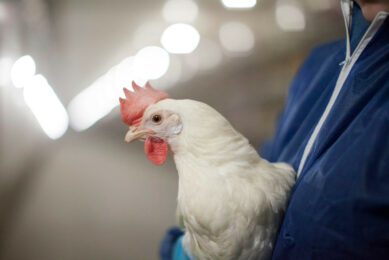Kuipers Group in South Africa manufactures feed at five sites

The Kuipers Group in South Africa operates five feed mills where it makes not only feeds for its own poultry farms. Half of total production is sold to other non-affiliated poultry farmers.
Founder of the Kuipers Group, Arend Kuipers, emigrated to South Africa in 1973. He began building a poultry empire near to Pretoria, northern part of Gauteng Province, South Africa, with fully owned as well as contract farms. Kuipers started in egg production with rearing and laying farms, packing stations and distribution. In 1999 he ventured into poultry meat production with a fully integrated approach through rearing and breeding farms, broiler farms, a hatchery, as well as a poultry processing plant.
Eagles Pride Hatchery, which produces about 1.4 million chicks per week, has become the biggest independently owned hatchery in South Africa. The company has four hatcheries, all in the Gauteng and North-West provinces, supplying mostly broiler growers in the inland regions of the country. The head office and three of the hatcheries are in Pretoria, while the newest hatchery is in Koster, west of Pretoria in the North-West region. Since 2004, the company manufactures its own feeds. His son Jurry is also a partner in the company.
The Kuipers Group operates five feed mills: Eagles Rock Feed Mill, Barlet Eggs, Wolma Poultry Farm, Eggbert Eggs, and Eagles Milling. Eagles Rock in Magaliesburg, south-east of Pretoria, is the largest mill with a monthly production of 11,000 tonnes. Less than half of this output is to feed the rearing and broiler breeder farms of the Kuipers Group; the rest is sold to contract broiler growers and non-affiliated customers.
Bartlet Eggs in Mulderdrift, close to Krugersdorp, manufactures about 5,000 tonnes of feed per month for rearing and laying hens, of which 45% goes to Bartlet, 30% to laying farms of the Kuipers Group, and 25% to external customers.Wolma Poultry in Middelburg, east of Pretoria produces 400 tonnes, Eggbert Eggs in Blood River, Natal, produces 800 tonnes a month. (Blood River is the place where the Boer in their trail to the then unknown north in 1838 fought an ascendancy of Zulu warriors). Both outputs are for own farms.
Eagles Milling in Swaziland is the latest addition to the Kuipers Group. This plant makes 3,000 tonnes of feed per month of which 800 tonnes is for the layer farm in Swaziland and the remaining 2,200 tonnes for sale. All factories do not run 24/7 so production can still be increased.A purchasing officer takes care of the feed ingredients and the Kuipers Group has two nutritionists employed. A small percentage of the corn used is grown by Kuipers, but the majority is purchased through Safex. This organisation was established after the government in 1996 fully withdrew its interests in grain trade. Grains are also purchased directly from crop growers.
Manual addition of ingredients
Due to the relatively low output at four of the five plants, and because the plants are not brand new, a lot of manual handling takes place, such as the addition of micro-ingredients. “In the current situation we strive for the most efficient production methods to lower costs and to optimise quality, because quality is the best selling point,” Kuipers says. Composition of premixes is done by specialised companies, “but according to our specifications,” Kuipers adds.
Eagles Rock and Eagles Milling need pellet mills to supply concentrated feed to the broiler farms. Coal-fired heaters generate steam for the conditioners. “We don’t have the advantage of cheap natural gas, as most plants in Europe have. For us, coal is the best accessible power resource.”Transport of the feed takes place mainly with own company trucks. “We don’t have pneumatic load-out systems, everything is transported with hydraulic powered belts and augers.” Around 6% of total feed production is sold in bags. “There are plenty small poultry farmers that do not own a silo. Most of the bagged feeds are hauled by the poultry farmers themselves, especially at our Eagles Rock Mill in Swaziland,” Kuipers states. AAF*Hans Bijleveld is Editor of Pluimveehouderij, the Dutch national poultry magazine.











